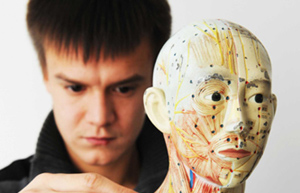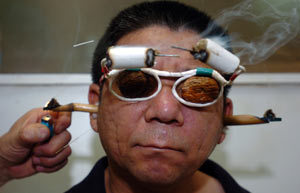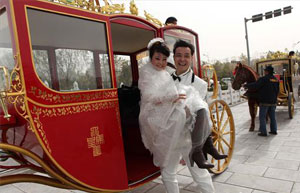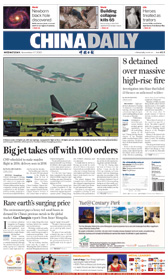Bank raises reserve ratios to stifle inflation
Updated: 2010-11-20 08:13
By Wang Xiaotian (China Daily)
Hike in reserve ratios aimed at mopping up credit, easing pressure
BEIJING - The People's Bank of China said on Friday it will raise the required reserve ratios for banks by 50 basis points from Nov 29 - the fifth such increase this year - in a move aimed at strengthening liquidity management and further tightening credit.
Li Xunlei, chief economist with Guotai Junan Securities, said the move was within expectations, given the over-liquidity in the market and the subsequent rising inflationary pressure.
To soak up over-liquidity and control inflation, the central bank announced a raise of 50 basis points on Nov 10, after raising interest rates for the first time in three years by 25 points.
The latest 50-basis-point increase should lock up about 350 billion yuan ($52.7 billion) that would otherwise be available for banks to lend out.
Wang Tao, head of China research at UBS Securities, said the increase of foreign reserves in China might reach $80 billion in October because the trade surplus amounted to nearly $27.2 billion, which is more than a 60 percent increase from the previous month.
"That would impose more liquidity pressure on the market," Wang said.
In addition, liquidity levels remain a cause for concern because China lent out 587.7 billion yuan in October, which was more than expected, said the central bank on Nov 11.
M2, the broad measure of money supply, rose 19.3 percent in October from a year earlier.
"The central bank's move is to counter superfluous hot money," said Pan Xiangdong, chief economist at Everbright Securities. He predicted that the government will raise reserve requirements or interest rates again in December to further tighten liquidity.
"The two monetary tools could be used jointly next month because raising reserve requirements usually targets a reduction in currency issuance and hikes in interest rates targets inflation by tightening money supply," said Wang.
She said monetary policies are better for curbing inflation than harsh administrative measures that may backfire because expectations of further price rises could intensify.
"In addition, monetary tightening measures could also prevent price hikes in certain sectors from spilling over into other commodities."
China's consumer price index (CPI), a key gauge of inflation, surged 4.4 percent year-on-year in October to a 25-month high, according to figures from the National Bureau of Statistics, stoking inflation fears.
According to figures from the Ministry of Commerce, in the first two weeks of November, the average wholesale price of 18 major vegetables went up by 62 percent year-on-year, and increased by 11.3 percent since the beginning of this year.
Wang predicted the country's CPI will probably reach nearly 5 percent year-on-year in November, but may fall in December due to a higher basis last year and then remain controllable next year.
Premier Wen Jiabao said on Wednesday that the State Council, China's Cabinet, is drafting a slew of measures to suppress rising commodity prices, including boosting food supply and the provision of other necessities, increasing subsidies for low-income families and using more targeted policies to maintain market order.
The government said that, when necessary, contemporary measures could be taken to interfere with the prices of some important daily necessities.
Meanwhile, in a bid to guarantee market supplies and curb price rises, the Ministry of Commerce announced on Wednesday that it will auction 200,000 tons of sugar from reserve supplies on Nov 22. Since the end of September, the ministry has sold 62,400 tons of pork and 210,000 tons of sugar from reserves to ensure there is sufficient supply to keep prices stable.
Paper's Digest

China bags Asiad team tennis title after 24 yrs
Wimbledon semifinalist Li Na led host China to capture the team tennis title on Tuesday at the Asian Games, accomplishing her Asiad tour with three consecutive victories.
China rate rises no panacea to curb inflation: PBOC adviser
Specials

Russian possessed with TCM
Born into a family of doctors, Maxime became interested in Traditional Chinese Medicine (TCM) at the age of 12, after hearing about TCM theories such as health preservation and recuperation.

Acupuncture takes stab at UNESCO list
Acupuncture and Peking Opera have been selected as candidates for UNESCO intangible cultural heritage status.

The wedding coach comes back to life
A groom carries his bride from a wedding coach in Xuchang, Henan province, Nov 11, 2010. Produced a local factory, various original hand-made wedding carriages were displayed on the streets, attracting young people chasing fashion and an environment-friendly lifestyle.




